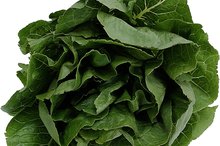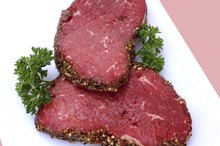Iron & Zinc Supplements
Iron and zinc are trace minerals responsible for important bodily functions, and deficiencies in the minerals can lead to serious medical conditions. While good sources of iron and zinc are found in many foods, you might need to take supplements if you are pregnant, on a restricted diet, have certain diseases or are not absorbing enough of the minerals, according to the University of Maryland Medical Center. Talk to your doctor before taking any supplements because side effects and interactions with medications are possible.
Function
Iron is an essential mineral commonly found in red cells of the body responsible for carrying oxygen from the lungs to the body’s tissues, authors Lisa Hark and Darwin Deen explain in “Nutrition for Life.” Iron also helps the cells transport carbon dioxide back to the lungs where it is exhaled, MedlinePlus.com adds. Zinc is necessary for growth, vision, smell, taste, blood clotting, healing of wounds, insulin and thyroid function, and helps protect the body from free radicals, chemical byproducts which damage cells, according to the University of Maryland Medical Center.
Recommended Intake
Chelated Zinc Side Effects
Learn More
Recommended daily intake of iron for women ages 19 to 50 is 18 milligrams, while intake for breast-feeding women of the same age range is 9 milligrams, the University of Maryland Medical Center advises. Pregnant females ages 14 to 50 should consume 27 milligrams daily, while men ages 19 to 50 require 8 milligrams daily, the center adds. Daily intake of zinc for men ages 19 and older is 11 milligrams, for women ages 19 and older it's 8 milligrams, pregnant women ages 19 and older should take 11 milligrams daily and breast-feeding women ages 19 and older should take 12 milligrams, according to the University of Maryland Medical Center.
Types
Iron and zinc supplements exist in various forms including capsules, tablets, syrup, liquid and solution form. Zinc is available as zinc picolinate, zinc acetate, zinc monomethionine, zinc glycerate, zinc citrate and zinc sulfate. Iron is available as ferrous fumarate, ferrous gluconate, ferrous glutamate, ferric ammonium citrate, ferrous glycine, ferrous succinate and ferrous sulfate. Ferrous sulfate is the most common iron supplement.
Expert Advice
The Difference in Nutrients Between Collard Greens and Spinach
Learn More
Take your iron or zinc supplement on an empty stomach with a full glass of water or fruit juice one hour before or two hours after eating. This allows for better absorption of the supplements. Avoid taking zinc at the same time as iron or calcium supplements and soon after consuming fiber, poultry, dairy products or coffee because the minerals and foods may interfere with the absorption of zinc. Similarly, do not take your iron supplement with coffee, tea or dairy products but with vitamin C to help absorb the iron, Lisa Hark and Darwin Deen recommend in “Nutrition for Life.”
Side Effects
Side effects common from iron supplement use include constipation, diarrhea, nausea, vomiting, heartburn and leg cramps, says the University of Maryland Medical Center report. Zinc supplements can cause nausea, vomiting, stomach upset and a metallic taste in the mouth, the University of Maryland Medical Center adds.
Warning
Consult your doctor before taking iron and zinc supplements, especially if you are pregnant, breast-feeding, have allergies or are taking other medications. Some medications, including certain blood pressure medications, antibiotics, anti-inflammatory medications, antacids and cholesterol lowering medications can interfere with absorption of the minerals, the University of Maryland Medical Center notes.
Related Articles
References
- “Nutrition for Life”; Lisa Hark and Darwin Deen; 2005
Writer Bio
Julie Saccone is a senior communications specialist and former journalist who began writing in 2003. She works in the health-care industry distilling research findings and complex medical topics for media and trade publications. Saccone has been published in newspapers including the "National Post" and "StarPhoenix." She holds a Bachelor of Arts in journalism from Ryerson University and an honors Bachelor of Science.









